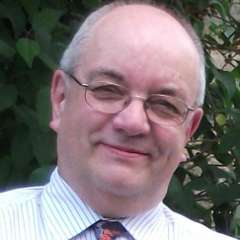Modestly truncated to fit a sub-three-hour touring slot, English Touring Opera’s new Così fan tutte zipped by with gleeful appeal. Losses were few and seldom crucial. Mozart’s fly-by-night chorus was the first thing to go, doubtless for reasons of economy, and director Laura Attridge dispatched some aspects of librettist Lorenzo Da Ponte’s comedy with a fleeting nod and a flighty wink.
There’s a weird house tradition, or so it often seems, that requires ETO shows to be compromised by parsimonious lighting. Not here. Instead, designer Oliver Townsend’s elegant solid-state sets are allowed to scrub up brightly under Mark Howland’s generous cues. It is 1930 and we are among the entitled English abroad, specifically if irrelevantly in the Egypt of Lawrence Durrell and Agatha Christie. Stacks of romantic novels litter the Alexandrian villa shared by Fiordiligi and Dorabella and sensuous statues adorn their garden, so it is clear that these women are already ripe for plucking even before Don Alfonso unleashes his dastardly plan to test their virtue and pick at their emotions.
ETO has assembled Mozart-scale instrumental forces that bolster its resident Old Street Band to apt proportions for Così. So that’s where the chorus budget went. The orchestral sound may have been a touch too earthy for Mozart – the smack of the sackbut was never far away – but Holly Mathieson conducted the sublime score with such zip and finesse that the ear soon adjusted. The singers, too, were a pleasure to hear, and in the case of Stephan Loges as Don Alfonso, a privilege to enjoy. The distinguished German baritone negotiated Jeremy Sams’ sparkling English translation with idiomatic panache, and sang and acted likewise. He gave the production its anchor.
The Fiordiligi of Joanna Marie Skillett (who shares the role on tour with Sky Ingram) was pleasantly sung but lamely directed, to the extent that the darkness of her inner conflict registered insufficiently. Indeed, elementary characterisation resulted in one-dimensional stage work from all four of the lovers; too often their emotions played on their faces but finished at the neck. Nevertheless, Frederick Long (Guglielmo), Thomas Elwin (Ferrando) and Martha Jones (Dorabella) all aced the score as individuals and their voices coalesced delightfully.
Attridge makes no excuses for what modern audiences perceive, reasonably enough, to be the opera’s sexism. It is what it is and she embraces it, trusting the scenario to deliver on its own terms. And deliver it does: the bile rises equally for all five of Don Alfonso’s hapless victims as he alone escapes, the arch-manipulator unscathed but self-revealing. Full marks to the director for depicting Despina (Jenny Stafford) as a co-conspirator shocked and undone by ignorance, and the same to ETO for mounting such a handsome production for its 14-venue national tour. Catch it if you can.




